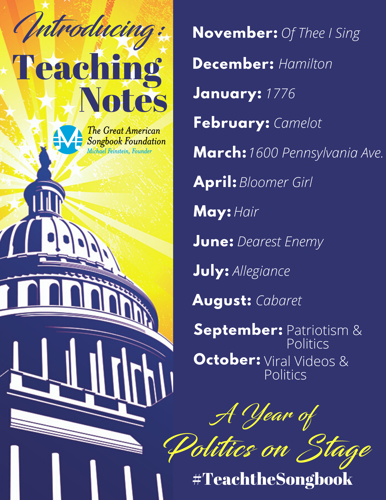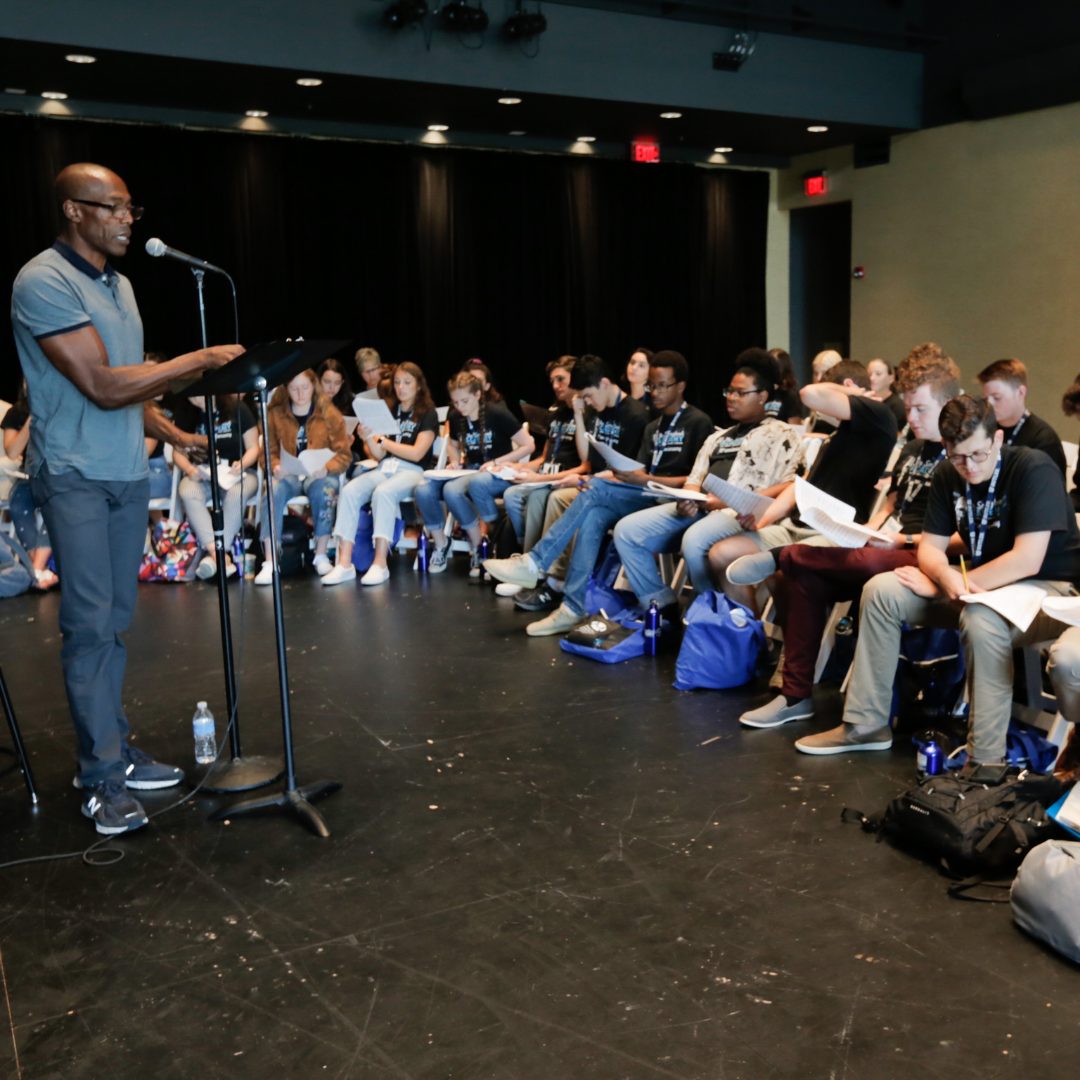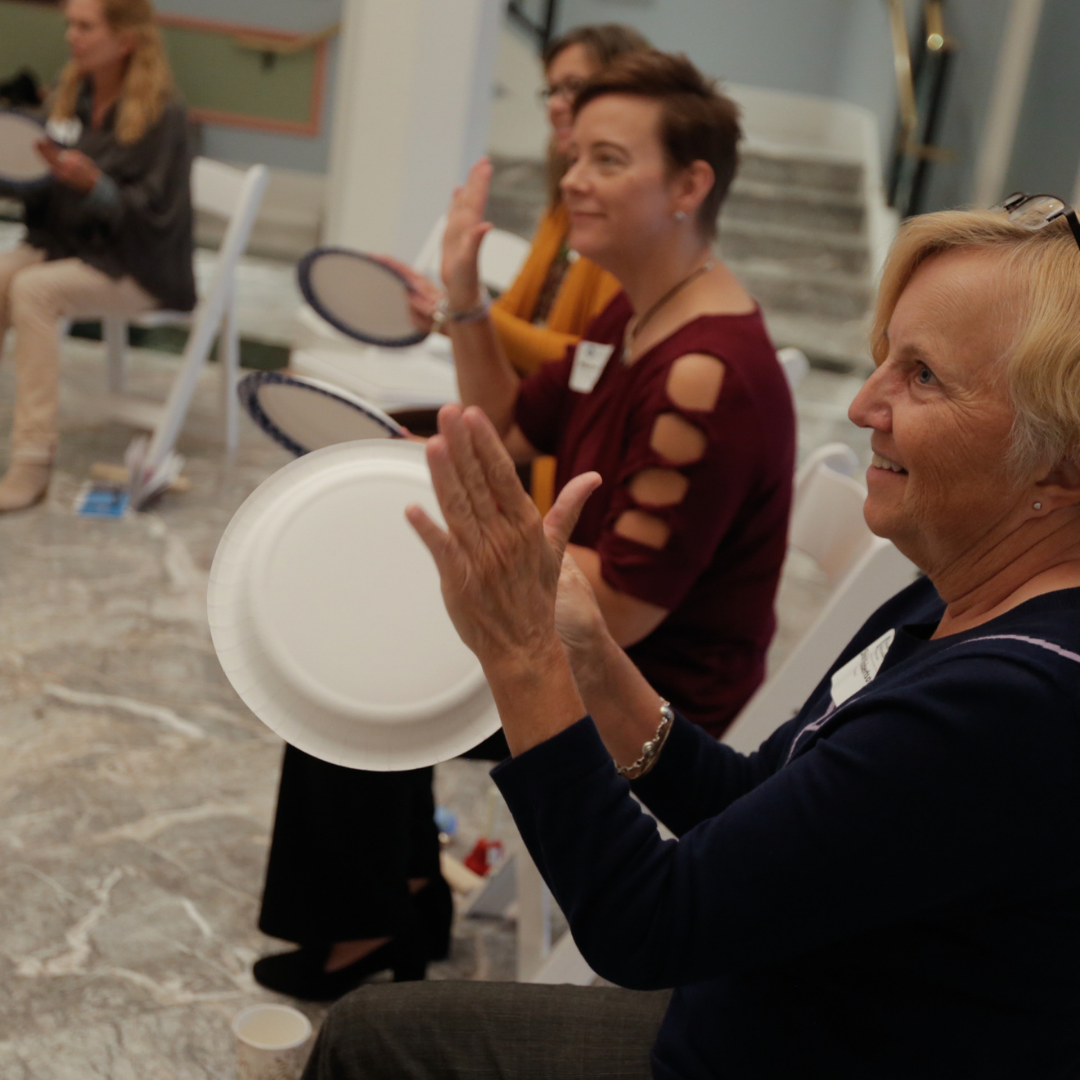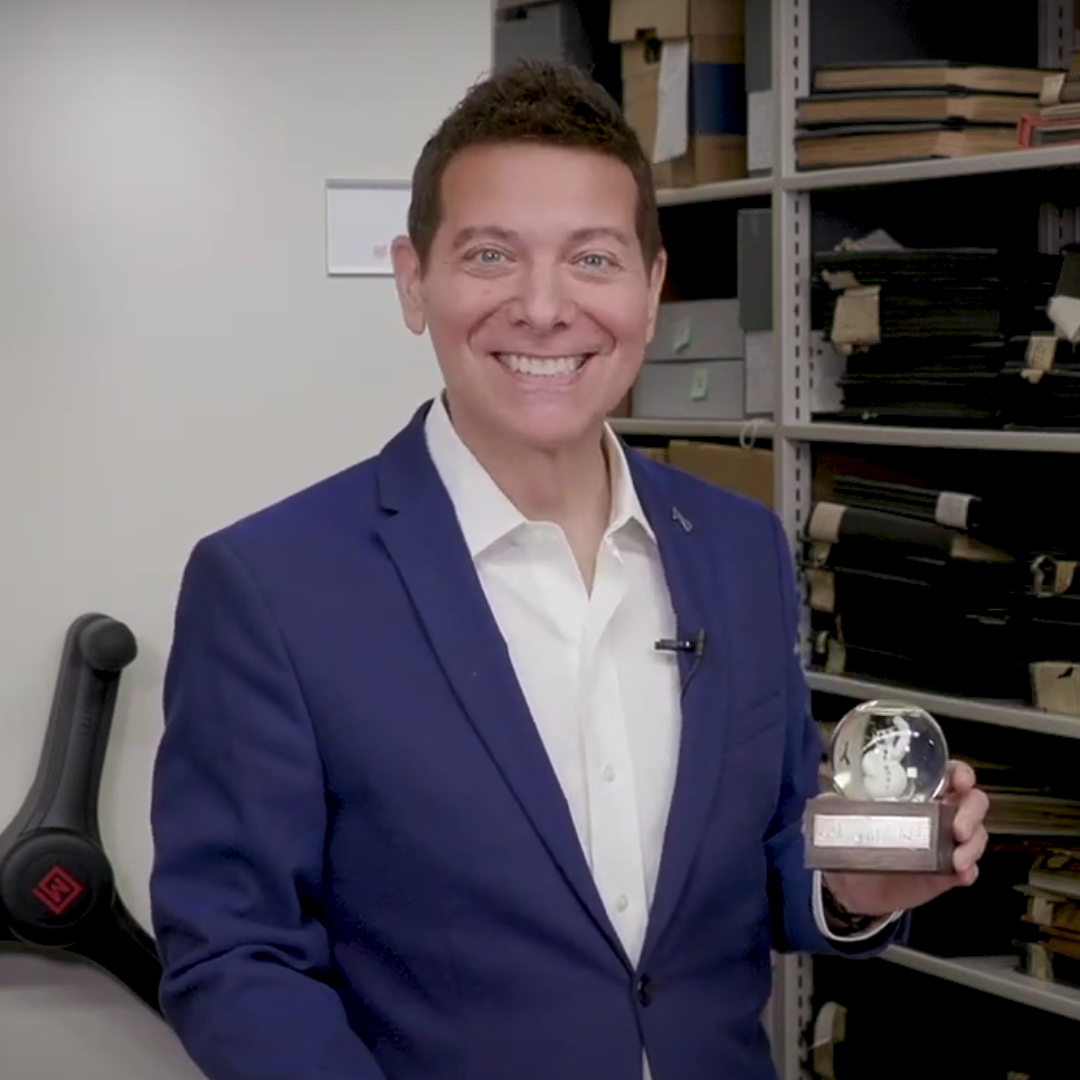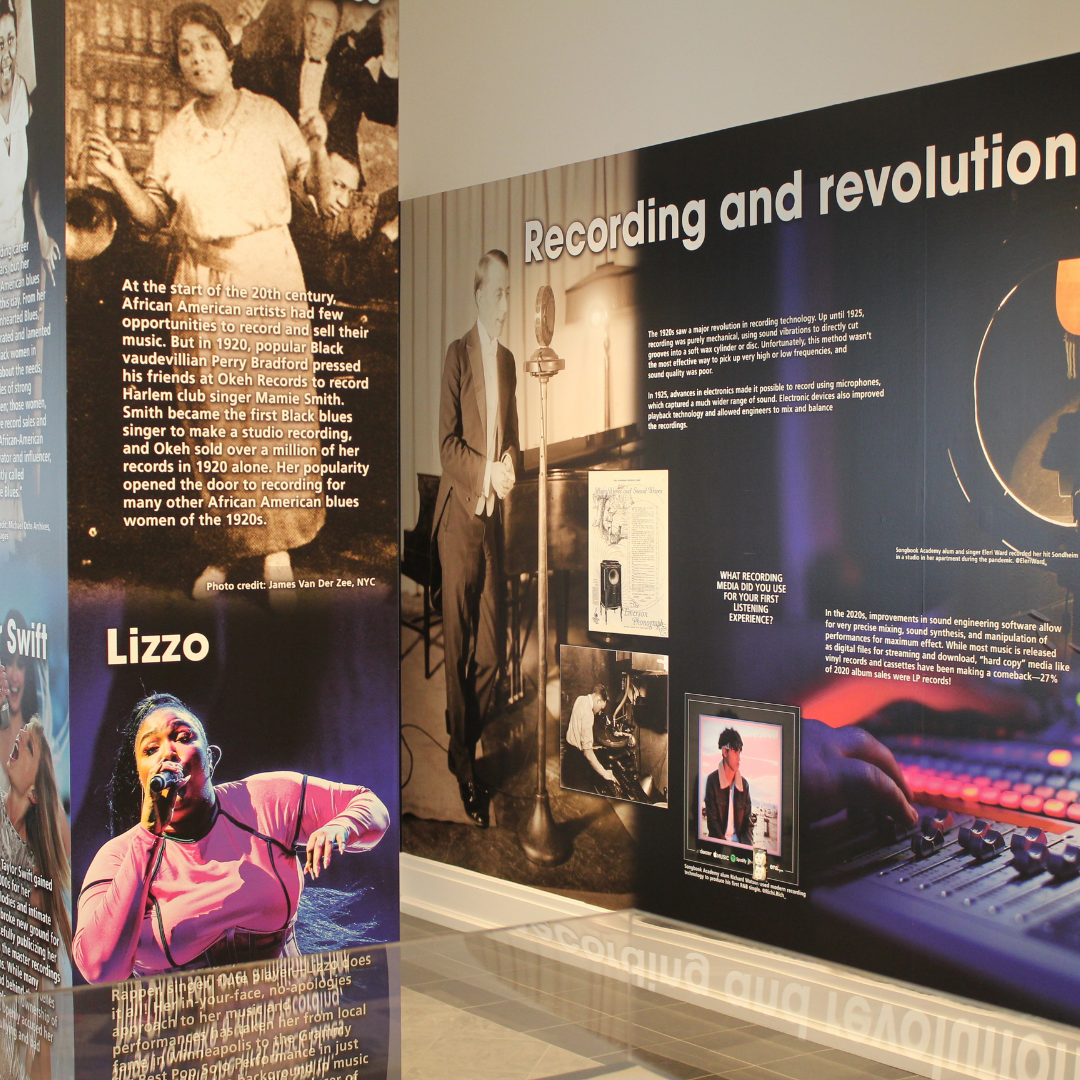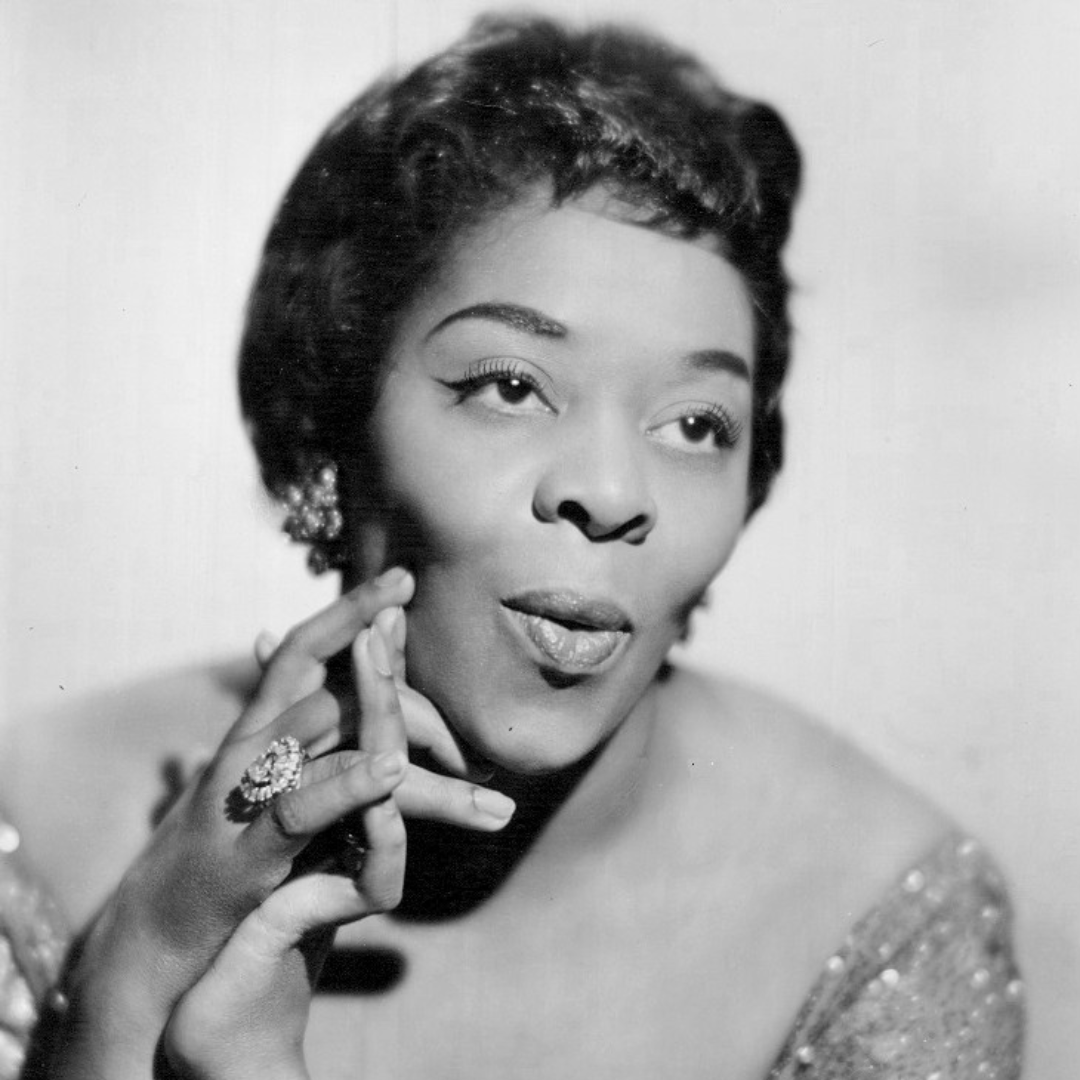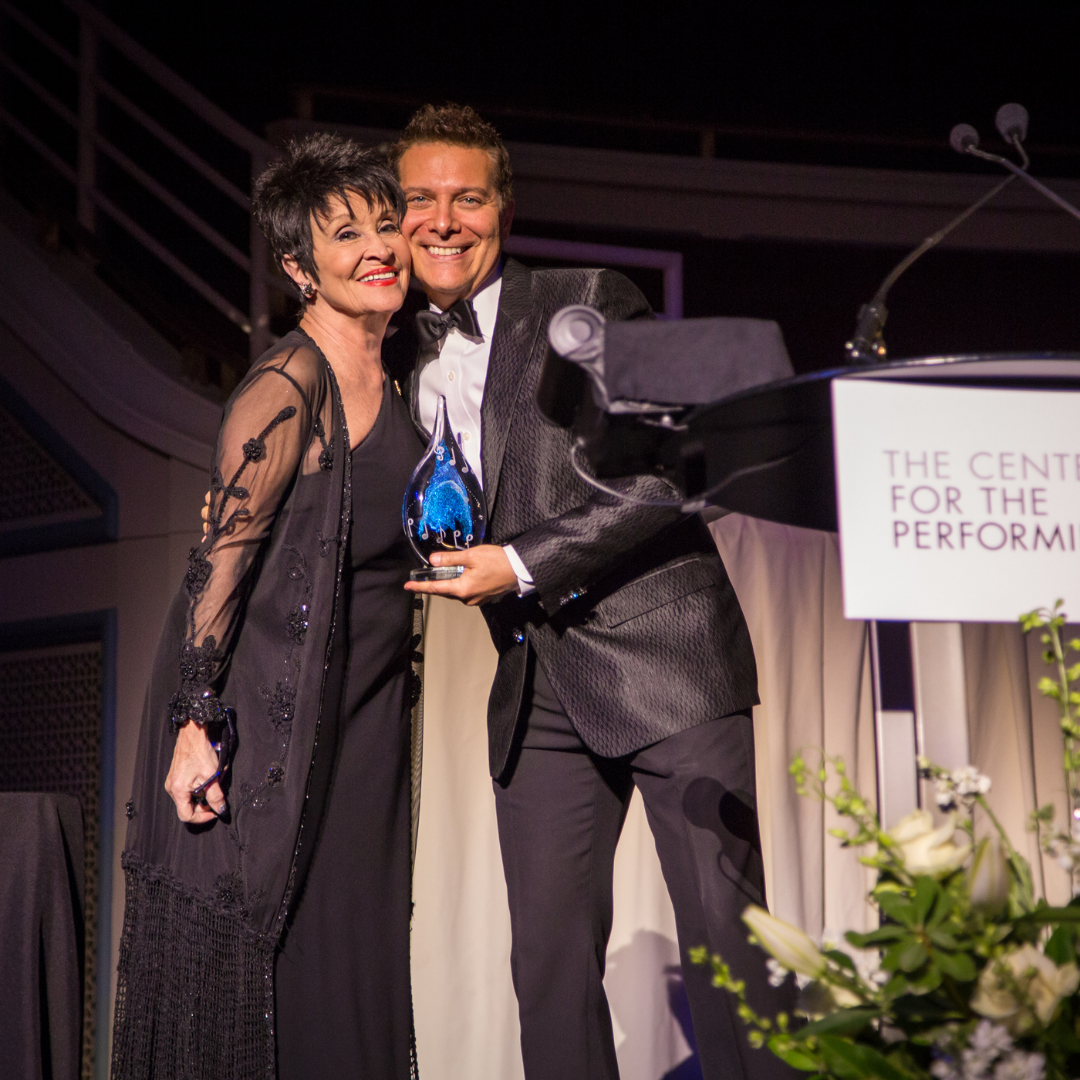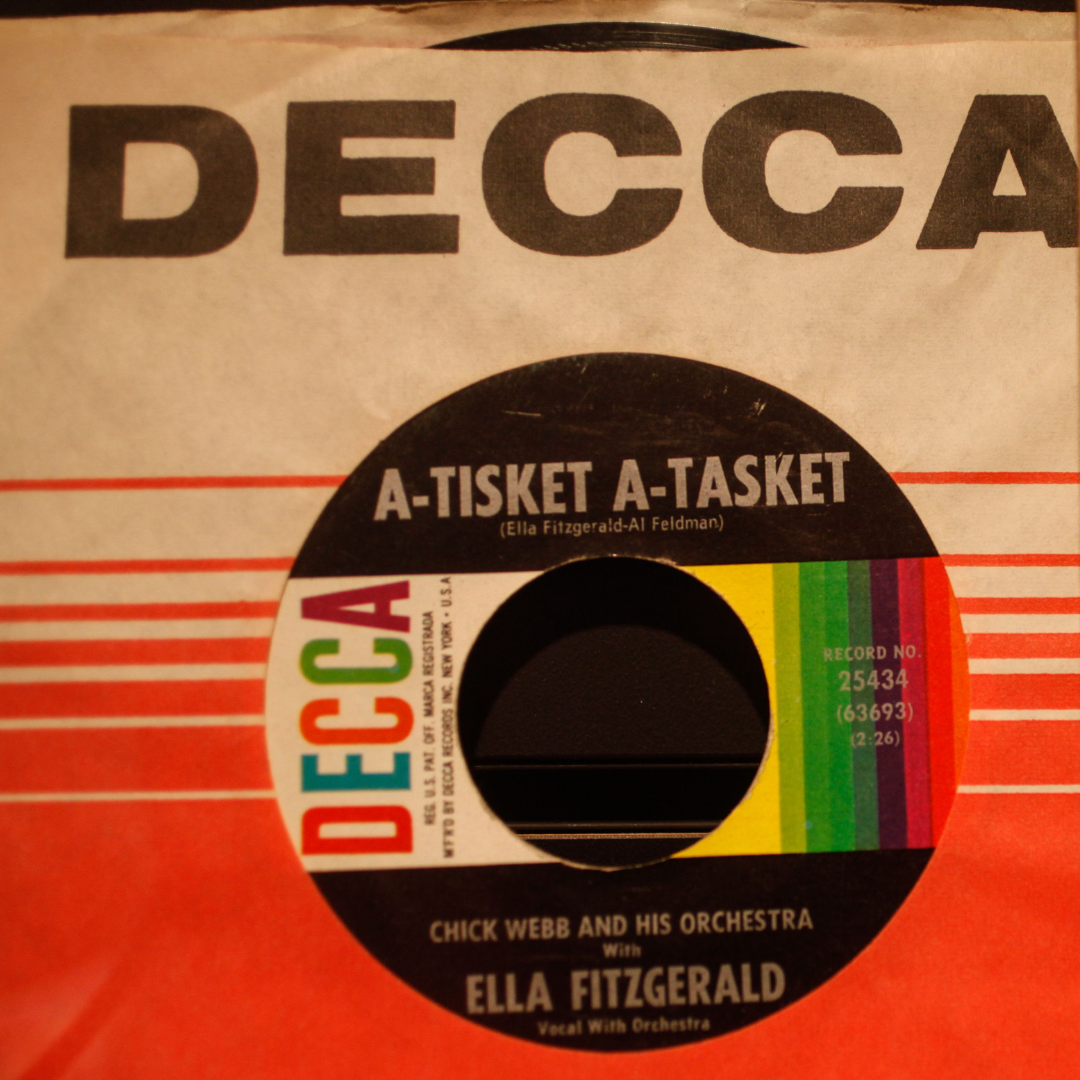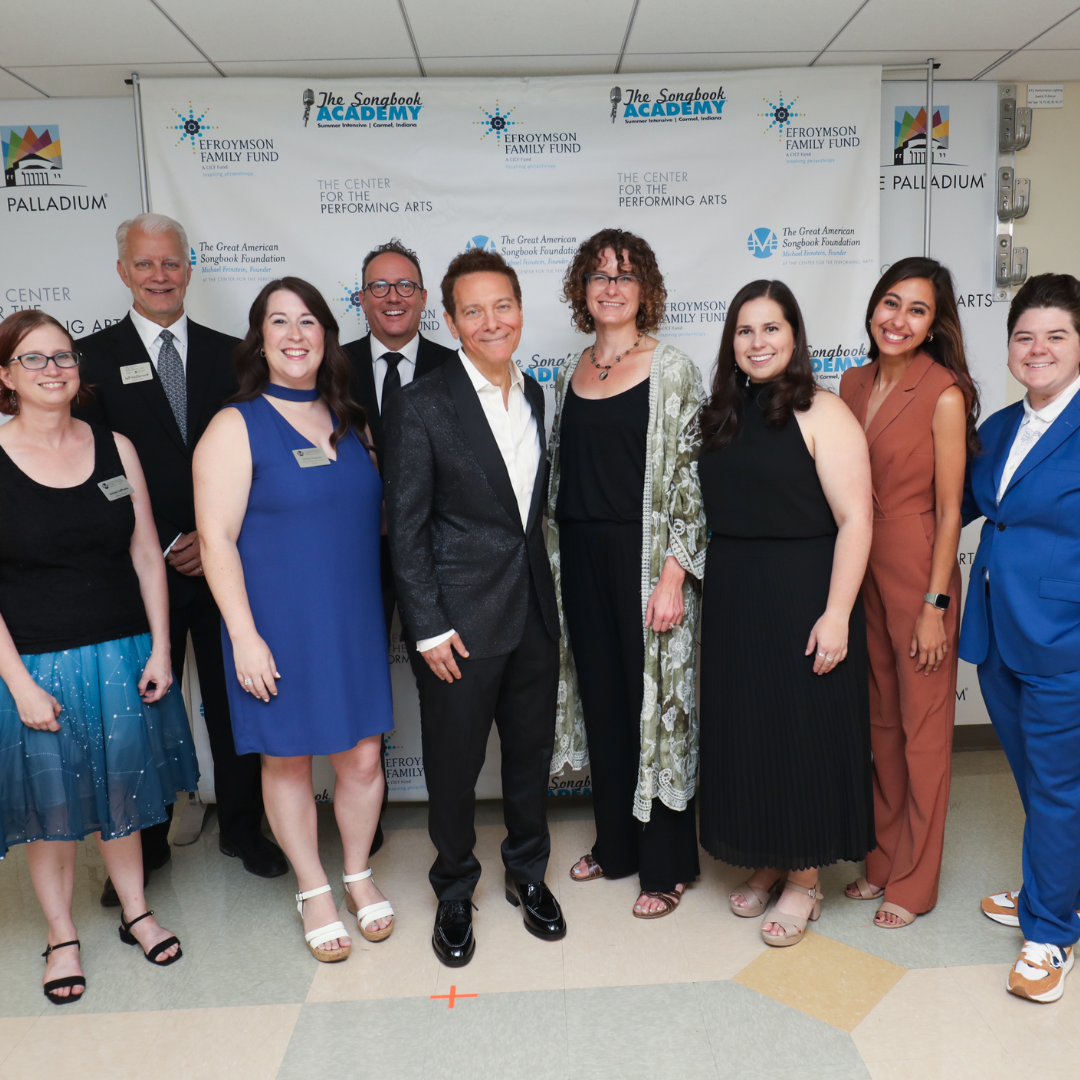Teaching Notes - Camelot
February 12, 2020
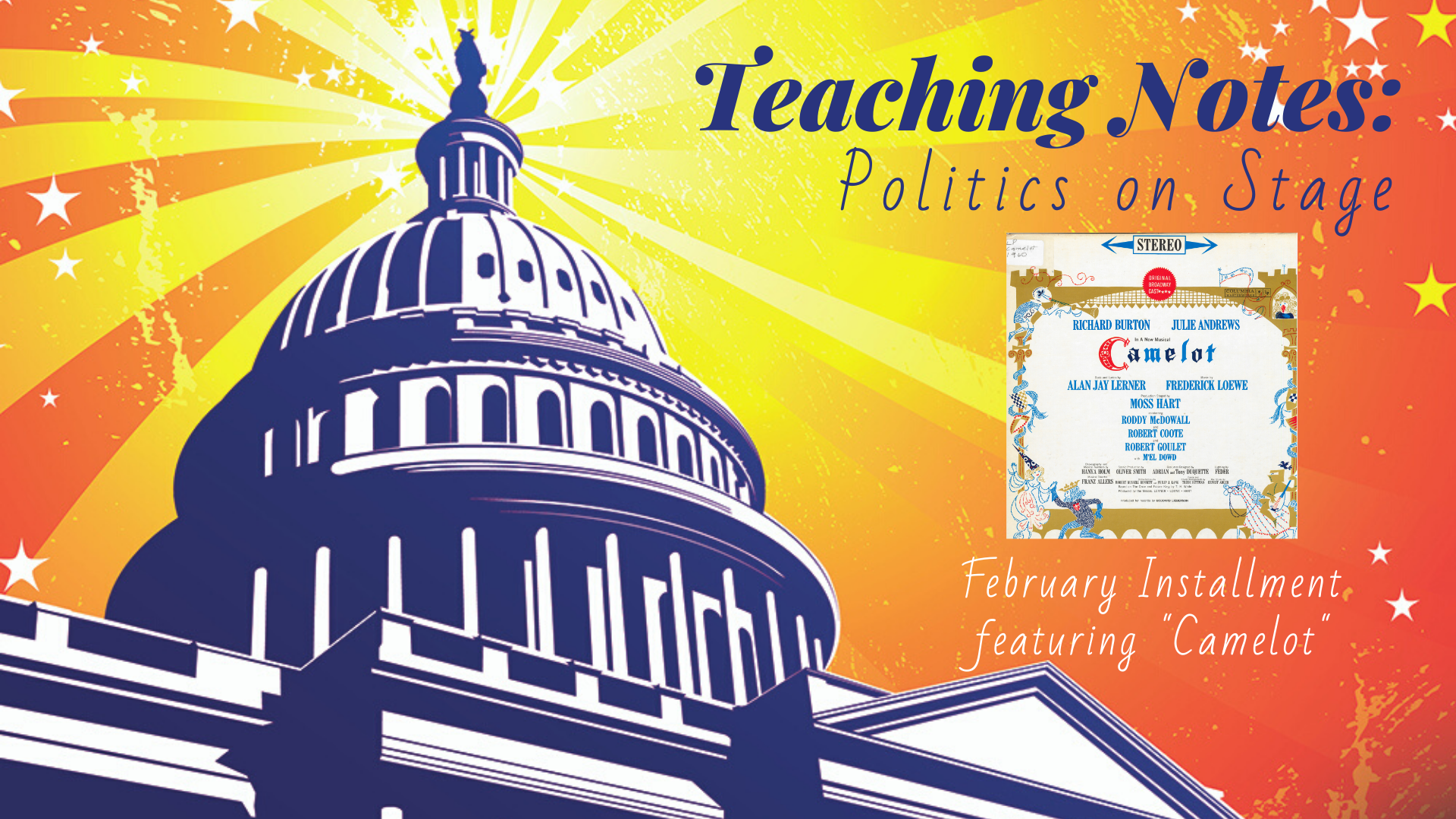
Welcome to Teaching Notes - a blog series written by a teacher to help other teachers #TeachtheSongbook.
A Note from the Author: I can’t imagine life without music. When tunes float by, memories flood in. My foot starts tapping, fingers start snapping, and I get caught up in the emotion of the song. For 28 years, music was always a key component in my classroom. It never failed to grab the attention of my students and made past cultures come alive with connections to daily life.
I’m excited to open up a discussion about the new Songbook exhibit, Of Thee I sing Politics on Stage. It’s a storytelling device where cultural values are seen in the context of music. Including musical theater in your classroom has never been easier. Join me in this forum where you can share your lesson plans and get ideas from others. It’s your point of access for creative ways to engage your students through music. Tell me what works and what’s missing. Let’s start a conversation and get those toes tapping.

Sue Ackley
Contact me at: info@thesongbook.org
This Month's Teaching Notes:
“Don’t let it be forgot, that once there was a spot, for one brief, shining moment that was known as Camelot.” Camelot and Kennedy. How did the adventures of a Medieval king become synonymous with an American president in the 60’s? Find out the fascinating story behind the legend.
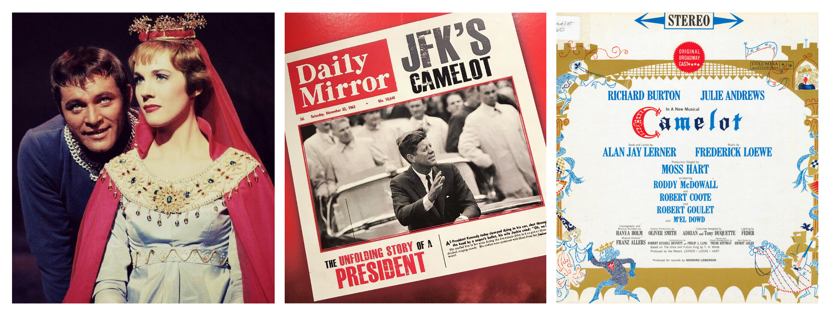
Images from the Songbook Foundation's current exhibit installation titled, Of Thee I Sing: Politics on Stage. Learn more here.
What's it all about?
An idealistic young King Arthur hopes to create a kingdom built on honor and dignity, embodied by his Knights of The Round Table. His Ideals, however, are tested when his lovely queen, Guenevere, falls in love with the young Knight, Lancelot, and the fate of the kingdom hangs in the balance. Read full summary here.
What was going on in U.S. politics in 1960?
Dwight D. Eisenhower was in the final year of his presidency in the midst of the Space Race, Cold War, and anti-nuclear protests. John Fitzgerald Kennedy became the newly elected president when the struggle for civil rights, Vietnam War, and the race to the moon were front and center. Kennedy’s “New Frontier” was the hope for the future.
What topics are covered in the musical?
-
Code of Chivalry
-
Feudalism
-
Prowess
-
Courtesy
-
Honor
-
Glory
-
Loyalty
-
Courtly love
Start a discussion:
-
What does Camelot tell us about the position of women in 5th century Britain?
-
How does the Code of Chivalry of the Knights of the Round Table compare to modern day ethics?
-
What effect did the reference to Camelot have on the legacy of President Kennedy?
-
How is the romantic spirit in Camelot reflected in the presidency of John F. Kennedy?
What's been said about the musical?
Everyone has an opinion. Here are a few of the responses I found that represent a wide range of perspectives considering the original production, contemporary revivals and everything in between.
- The Westport Country Playhouse explores in their Teacher Curriculum Guide for Lerner and Loewe's Camelot, “However, at its heart, the Arthurian Legend expresses our urge to be on the side of order, for civilization, and for righteousness. While each generation has added, subtracted and altered certain details of the story to fit their own sensibilities, Arthur’s belief in ‘right’ over ‘might,’ still shines through." Access the full guide here.
- In a Teacher's Guide for their production of Camelot, Goodspeed Musicals delves into the show's background, “'Lerner and Loewe’s script of the King Arthur story is based on T.H. White’s The Once and Future King... The earliest chronicles of King Arthur’s adventures date back as early as the 12th century, when Geoffrey of Monmouth began writing his (supposed historically accurate) History of the Kings of Britain. The real-life existence of King Arthur is a topic continually discussed by scholars… The original 1960 production of Camelot won four Tony Awards: Best Actor in a Musical (to Richard Burton, Best Conductor and Musical Director, Best Scenic Design (Musical), and Best Costume Design (Musical). It also won the Outer Critics Circle Award for Set Design.”Access the full guide here.
- In a radio series marking the 100-year anniversary of President John F. Kennedy's birth, David Boeri references the statement by Jackie Kennedy after her husband's death, "... There will never be another Camelot again." Listen to the full spot here.
- In an opinion piece with The Guardian, Sarah-Jane Stratford makes the argument, “Referring to JFK's legacy as 'Camelot' doesn't do him justice... The source of the Camelot reference is a story of failed idealism. It, like all mythology, distracts us from the whole story of Kennedy.” Read the full summary here.
- In remembrance of the 50th Anniversary of JFK's assassination, an article in The Wall Street Journal explained that, "The name of King Arthur's mythical court city has its roots in medieval romantic literature, but thanks to skillful media manipulation by Jacqueline Kennedy after her husband's death, 'Camelot' remains a potent mythmaking metaphor for the Kennedy administration.” Read the full summary here.
Useful Lesson Plans and Ideas
- Arthur The Once and Future King - Teacher's Guide
- Camelot A Legendary Musical: Teacher's Instructional Guide
- Exploring Arthurian Legend
- Arthuriana Pedagogy: Resources for Teaching High School
- Medieval England (410-1485) - King Arthur and Camelot: Myth, Legend or Fact?
- Lerner and Loewe's Camelot Teacher Curriculum Guide
Where can I find out more?
- Videos below
- Camelot Original Broadway Cast Recording
- Camelot: The Story
- Code of Chivalry
- Kennedy's New Frontier
- Spinning the Camelot Fantasy
- Making JFK Matter- Popular Memory and the 35th President (Pages 190-195)
- Jackie: Behind the Creation of JFK, America's once and future king
- Ushering in the Camelot mythology
- Kennedy and Camelot myth
Richard Burton singing "Camelot" in 1978
Camelot 1982 Act II
Camelot 1982 Act III
Up next month: 1600 Pennsylvania Avenue
What does a musical disaster and a smash hit have in common when they’re worlds apart?
Happy Teaching! Please share your success in the classroom with us by posting about your lesson plan using the hashtag #TeachtheSongbook and tagging us @songbookfoundation.
Keep an eye out for our other installments coming soon...
